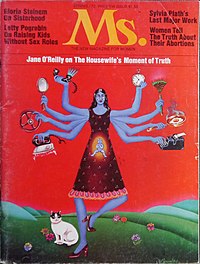
Photo from wikipedia
I can still see the dog's face as its eyes connected with mine, framed by the black bin bag it had been carried in. I can still hear the clicking… Click to show full abstract
I can still see the dog's face as its eyes connected with mine, framed by the black bin bag it had been carried in. I can still hear the clicking sound, louder than the animal's shrill cries, made by a mass of maggots moving against one another beneath the dogs matted fur, moistened by fluids leaking from its damaged flesh. My hands were shaking with panic and rage and I could hardly draw up the euthatal into the syringe quickly enough. I wanted to put an end to this, immediately. As the lethal fluid flowed into the tiny vein the dog's body finally relaxed. At my hand, like so many others, she had ceased to exist. Through the window I could see her owners waiting outside in the sunshine to pay me and I thought about the silky feel of the fur which covered an expensively shaped head. I knew this dog was loved once. This paper develops two neglected areas of veterinary thought; anthropological studies of the veterinary profession and feminist care approaches in veterinary ethics. I argue that the development of veterinary anthropology is crucial to advancing our understanding of veterinary lived experiences, through highlighting the previously under acknowledged emotional, relational and contextual realities of veterinary practice. I further propose that an ethic of care for the veterinary profession, which meaningfully connects with veterinary lived experiences, may provide a valuable approach through which to further develop veterinary ethical thinking. I share an autoethnographic account of a difficult veterinary encounter, which I then analyse using a novel feminist care approach. Through analyses centered on both emotional and relational aspects of veterinary care, I challenge the boundaries of traditional veterinary ethical approaches in terms of the scope, scale and complexity of veterinary ethical decision making. I describe the concept of emotional sponge work in veterinary practice and outline its potential impact for advancing understanding of both veterinary well-being and the profession's societal role. Finally, I propose that a feminist ethic of care might provide a framework for redefining the focus of veterinary professional responsibility, beyond animal health and toward the maintenance of healthy relationships between humans and animals.
Journal Title: Frontiers in Veterinary Science
Year Published: 2022
Link to full text (if available)
Share on Social Media: Sign Up to like & get
recommendations!